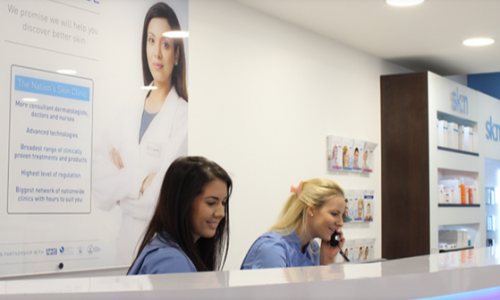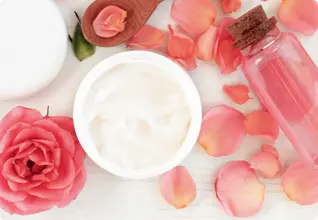Debunking acne myths: do these home treatments really help to get rid of acne?

Many home remedies claim to help reduce the appearance of acne, but accepting these claims without carrying out adequate research could result in further irritation of acne-prone skin. We run the rule over some of the most common remedies for acne, and whether they are worth considering.
What is acne?
Acne is a skin condition that causes spots, oily skin and sometimes results in skin becoming hot or painful to the touch. It usually coincides with the hormones changes experienced during puberty, yet it can start at any age.
Acne occurs because hormones trigger the overproduction of oil on the surface of the skin. This is called abnormal sebum. This abnormal change disturbs the usually harmless skin bacteria, P. acnes, causing it to become more aggressive and resulting in the symptoms developed during an acne outbreak (e.g. blackheads, whiteheads or cysts).
What helps acne?
Acne is an incurable condition, yet there are a range of treatments, medications and products that can help manage your symptoms. Depending on the severity of your acne, some home remedies may soothe inflamed and angry skin, whereas others may be ineffective and only amplify symptoms.
The NHS has outlined that by removing bacteria, applying anti-inflammatory products and using topical retinoids to exfoliate and reduce dead skin cell build up can help reduce the appearance of acne. Sourcing products with these properties like tretinoin, adapalene, salicylic acid and benzoyl peroxide should help manage acne. Some of these are only available to purchase with a prescription from your dermatologist.
Does aloe vera help acne?
Aloe vera has natural antibacterial and anti-inflammatory qualities and has demonstrated some efficacy in reducing the symptoms of mild and moderate acne. Its soothing, hydrating properties can help to increase the skin’s water intake to avoid inflammation and reduce redness present with acne. As the body of aloe vera gel is 99% water, keeping the skin hydrated can help prevent acne. Drinking water may also contribute to replenishing the skin’s levels of hydration.
Does tea tree oil help acne?
Tea tree oil is one of the most popular essential oils for skincare use and can significantly improve mild to moderate acne. As tea tree oil is antimicrobial and antibacterial, it kills the acne causing bacteria and can reduce oily skin. It is mostly known for its distinctive fragrance and tingling after-effect, which can sometimes cause some irritations and burning depending on your skin sensitivity.
Lavender water
Whilst lavender water is inherently an aromatic oil mainly used for its calming effect, improving sleep and reducing stress, the efficacy of lavender water for acne treatment is disputed. There is no recognised study that proves it is effective in fighting hormonal acne.
Does toothpaste help acne?
Whilst there are many claims that toothpaste can dry up individual spots, it is not advised to use acne-prone skin. Although toothpaste does have some antibacterial properties, ones beneficial in the pursuit of acne free skin, it also contains strong substances that can irritate the sensitive nature of the skin.
Does the pill help acne?
For women, the combined oral contraceptive pill may be prescribed as acne treatment. Sometimes, the progestogen-only pill or contraceptive implant can make acne worse. For further advice, consult your doctor.
Does Sudocrem help acne?
Sudocrem is an antiseptic healing cream formulated to help treat acne. As it contains benzyl alcohol, one of the most effective topicals in acne treatments, Sudocrem is clinically proven to soothe, heal and protect the skin. It can work to reduce the appearance of inflamed, acne skin and keeps skin infection free.
Does apple cider vinegar help acne?
Apple cider vinegar as an acne treatment agent has limited data in regard to efficacy and safety. Although vinegar largely has the ability to kill bacteria and viruses, there isn’t enough research to validate its efficiency in reducing the activity of P. acnes bacteria specifically.
Do sunbeds help acne?
Whilst there are some light-based therapies that can be successful when treating acne, direct UV rays emitted from sunbeds can damage the skin and aggravate this condition.
Overexposure to UV rays may temporarily aid acne-prone skin by drying and removing excess oil present, but the symptoms of acne can then be exacerbated. Post-sunbed effects can further aggravate spots and blemishes, accelerate the signs of ageing and increase the likelihood of developing skin cancer.
Best acne treatments
While some home remedies may serve to relieve the symptoms of mild acne, they are ineffective in reducing the appearance of moderate and severe acne. For safe and efficient results, a professional treatment path is recommended.
The three most effective acne treatments are:
Isolaz (Blue Light Treatment)
A combined approach employing vacuum suction and light-based devices to leave skin feeling clearer and smoother. The suction device first extracts initial debris and excess sebum from the pores. It is then followed by a light-based treatment that emits a concentrated pulse of blue light to penetrate further into the skin. Works to remove any deeply-set bacteria and prevent future acne flares.
Skin Peels
Formulated with natural active ingredients that are clinically proven to improve complexion, exfoliate and deeply clean acne-prone skin. Can also be used to reduce the appearance of acne scars.
There are several chemical peels peels to choose from including:
- Pyruvic Peel – a rejuvenating, anti-bacterial peel. Stabilises the production of sebum
- Salicylic Peel – a preventative, exfoliating peel. Works to prevent outbreaks and sooth angry, inflamed skin
Key takeaways
- Home remedies can only soothe mild and moderate acne
- Professional acne treatments are recommended for severe acne and lasting spot-free skin
- Finding products with a content of tretinoin / adapalene / salicylic acid / benzoyl peroxide are most effective when combating acne. It is recommended to incorporate them into your skincare routine.
At sk:n, we have the largest network of doctors and nurses who understand the impact acne can have on your confidence and self-esteem. Find your clinic today and book a consultation with our acne specialists.
Related Articles

08
Apr 2024

08
Apr 2024
Request a callback
One of our friendly sk:n advisors will call you to book your consultation.
- More than 450 consultants, doctors, nurses and medical practitioners
- Regulated by the Care Quality Commission, Health Inspectorate Wales and Health Improvement Scotland
- Partner of the NHS
- Rated excellent by our clients on Trustpilot
- Strict safety and care protocols





